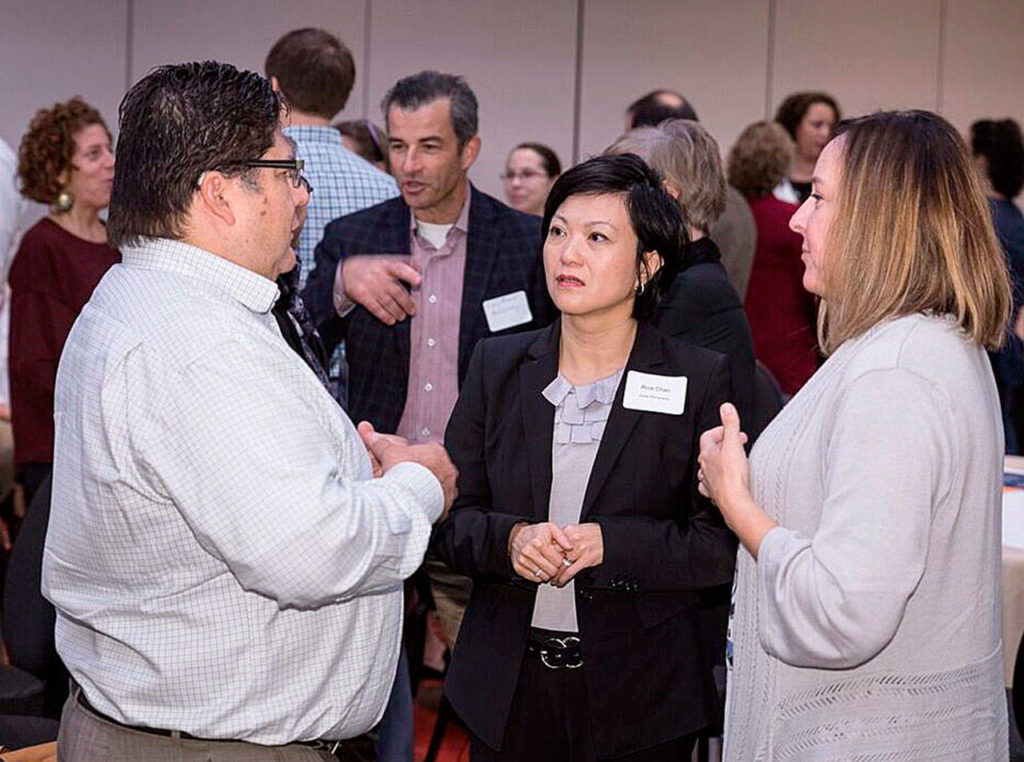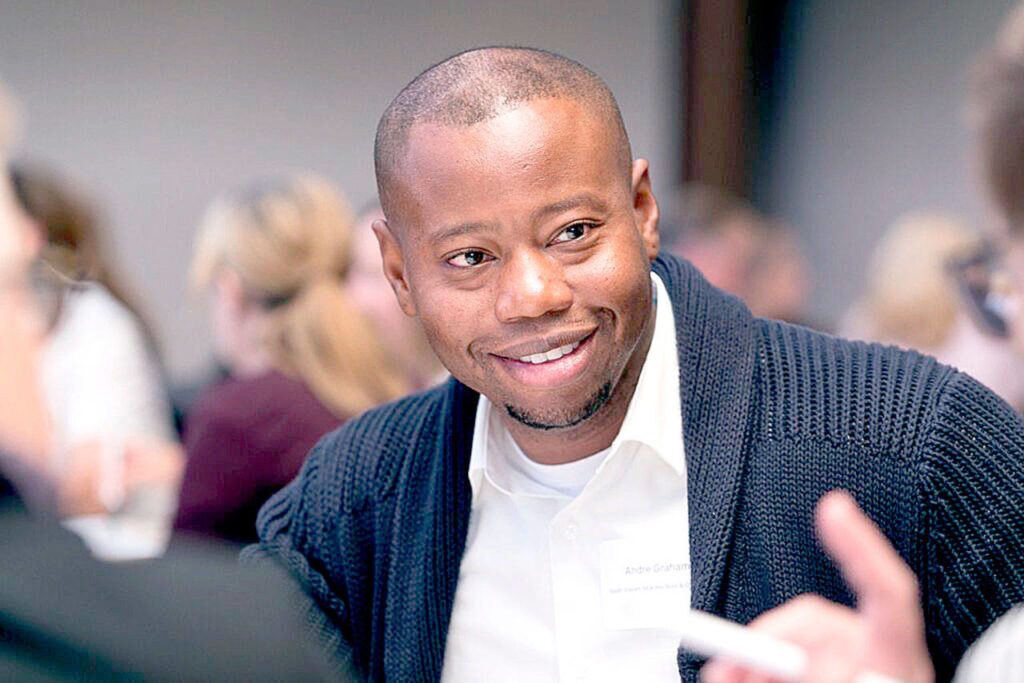By Carla Fisher / Leadership Snohomish County
Imagine you’re one of 120 people gathered for seven hours sharing ideas and envisioning outcomes for Snohomish County’s next two decades. No laptops, phones or pens in sight — just flipcharts, markers and Post-its, and doodling is encouraged.
Now imagine the people next to you aren’t the usual suspects for strategic planning. Titles are inconsequential. Everyone is encouraged to say hello. You spot government workers and CEOs, but the room is filled with those from nonprofits, high school students, community activists, entrepreneurs, indigenous people, retirees, teachers and more.
“The best way to describe Summit 2038 is to explain what it’s not,” said Kathy Coffey, Leadership Snohomish County executive director. “It’s not about gaining public support for another plan or advisory group or committee. It’s about activation and influencing — inviting strategic conversation with grassroots individuals to dream about their future quality of life. We call that ‘finding the possible,’ because we’re imagining everything Snohomish County can be in 20 years.”
Hosted by LSC on Oct. 15 at Tulalip Resort Casino, Summit 2038 began by asking, “Imagine it’s 2038. Your community in Snohomish County is filled with inspired, engaged individuals whose needs are met and who are working toward achieving their dreams and aspirations. Your community is a better place for all. Paint the picture: What does it look like? What do you see happening that is new, different, better?”
Attendees buzzed with ideas, discovering that co-creating a community’s future goes beyond jury duty and voting. Civic engagement is fundraising, volunteering, advocacy, joining a board of directors, starting local projects.
Summit 2038’s origins
In fall 2017, LSC entered its 20th year and looked to chart its course for the next 20 — a timeframe coinciding with Snohomish County’s expected population increase of 250,000 by 2038.
LSC used its class structure to convene a Community Impact Project Team: Sean Doty, Lynnwood Police Department; Kelsey Hukee, Fortive; Sharon Humphreys, formerly of Swedish Medical Center; and Joel Taylor, Boeing. A community planning committee, including Crystal Donner, Perteet, Inc.; Julie Frauenholtz, City of Everett; and Lacey Harper, Office of the County Executive, formed to lay the event’s foundation.
To facilitate, Coffey enlisted author Bob Stilger to employ techniques used when rebuilding a community on the northeast coast of Japan after triple disasters struck. “In all my experience with collaborative changemaking, I’ve found we don’t have to wait for the tragedy of disaster to make the communities we want,” Stilger said.
Coffey also brought in consultant Amanda Fenton, who specializes in hosting and harvesting collaborative change-making conversations, and graphic facilitator Catherine Bachy to document the day in 4-by-8-foot illustrations.
Snohomish County’s civic DNA
The biggest outcome of the work leading up to Summit 2038 was determining the county’s civic DNA: attributes or human behaviors that help foster a better community for all. Snohomish County’s civic DNA — culled from an online survey and a series of discovery sessions — is collaborative, resilient, helpful, diverse and growing.
With their civic DNA top of mind, Summit 2038 participants set their own agenda for the afternoon by answering, “What idea could you start a conversation on today that would contribute to a healthy and vibrant community?”
“People support what they’ve had a hand in creating,” Fenton said. “We’re shifting the thinking from, ‘Is anyone willing to help?’ to ‘Does anyone see something that needs to change and is willing to take the first steps?’”
Fourteen individuals came forward with ideas to move to action, announcing their topics and table locations. Participants “shopped” the wall of questions for which discussions to join.
Chris Fratini of McKinstry asked, “How does the business community promote connectedness and contribute to the community as a whole in a meaningful way?”
Local restaurateur Shawn O’Donnell asked, “How do we become the Land of Opportunity?”
Other questions included, “How can individuals join larger groups or communities to prevent homelessness in 2038?” “How do we get youth involved in our communities?” and “What would racial equity look like in Snohomish County by 2038?”
A custom-made worksheet named the project, provided conversation-starters and ways to continue post-SUMMIT. “That activation is crucial,” Coffey said. “We’ve all been to events where we left the room with a glow, having done something important. We talk about it, tweet about it, and then, a week later, we catch ourselves thinking, ‘Now what?’”
When the discussions ended, Stilger emphasized that self-organization is what leads to sustained action. “Change happens because the grassroots and the grass tops of the community come together and say, ‘This is important; let’s make it happen,’” he said. “People coming together, like you’ve done today, talking about what’s important and what you’re willing to stand up for and stay together on, that’s what makes the Snohomish County of 2038. Today has the potential to be a really important beginning.”
Talk to us
> Give us your news tips.
> Send us a letter to the editor.
> More Herald contact information.



























